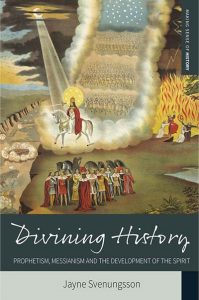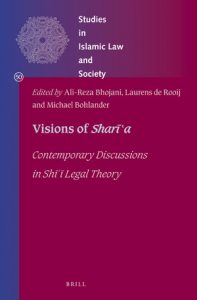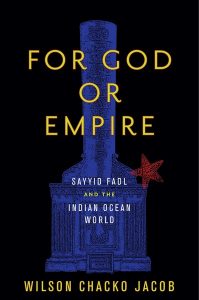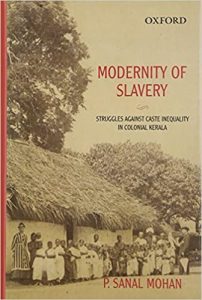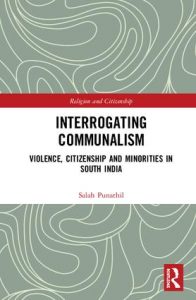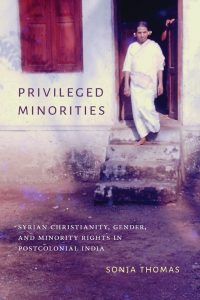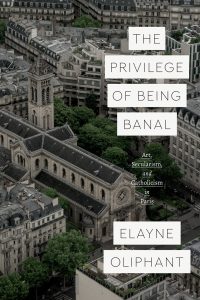-
Valentina Napolitano “Francis, a Criollo Pope.” Religion and Society 10 (1): 63 – 80.
-
Armando Salvatore (2018) “Civility and Charisma in the Long-Term Genesis of Political Modernity within the Islamic Ecumene”
-
Sonja Luehrmann. 2019. “‘Everything New That Life Gives Birth To’: Family Values and Kinship Practices in Russian Orthodox Antiabortion Activism.” Signs: Journal of Women in Culture and Society 44 (3): 771 – 795.
-
Ulrich Schmiedel (2019) “‘Take Up your Cross’: Public Theology between Populism and Pluralism in the Post-Migrant Context”. International Journal of Public Theology 13 (2): 140 – 162.
-
Seçil Dağtaș (2020) “The Civilizations Choir of Antakya: The Politics of Religious Tolerance and Minority Representations at the National Margins of Turkey. Cultural Anthropology 35 (1): 167 – 195.
-
Mayra Rivera (2019) “Poetics Ashore.” Literature & Theology 33 (3): 241 – 247.
-
Neena Mahadev (2019) “Economies of Conversion and Ontologies of Religious Difference: Buddhism, Christianity, and Adversarial Political Perception in Sri Lanka.” Current Anthropology 59 (5): 665 – 690.
-
Konrad Pędziwiatr (2018) “The Catholic Church in Poland on Muslims and Islam.”Patterns of Prejudice 52 (5): 461 – 478.
-
Katharyne Mitchell (2019) “The Sanctuary Network: Transnational Church Activism and Refugee Protection in Europe” (coauthored with Key MacFarlane). In K. Mitchell, R. Jones, and J. Fluri, Handbook on Critical Geographies of Migration. London: Edward Elgar Press, 410-424.
- Gilberto Rosas (2019) “Necro-subjection: On Borders, Asylum, and Making Dead to Let Live.” Theory & Event 22 (2): 303 – 324.
-
Yasser Arafath (2020) “Polyglossic Malabar: Arabi-Malayalam and the Muhiyuddinmala in the age of transition (1600s – 1750s). Journal of the Royal Asiatic Society 30 (3): 517 – 539.
-
T. T. Sreekumar (2020) “Urban upheavals as practices of new sexual ethics: ‘Kiss of Love’ movement in India.” Journal of International and Intercultural Communication.
-
Nandagopal R. Menon (2018) “What do Polemics Do? Religion, Citizenship, and Secularism in South Indian Islam.” History of Religions 58 (2): 128 – 164.
-
R. Santhosh & M.S. Visakh (2020) “Muslim League in Kerala: Exploring the Question of ‘Being Secular’. Economic & Political Weekly 55 (7): 50 – 57.
-
J. Devika (2018) “Decolonizing Nationalist Racism? Reflections on travel writing from mid-twentieth century Kerala, India.” Modern Asian Studies 52 (4): 1316 – 1346.
-
Levin Mary Jacob (2017) “Should the Translator Ask: Woman, What have I to do with You?” Translation Today 11 (1).
-
O.B. Roopesh (2020) “Temple as a site of modern contestations: Kshetra punarudharanam in postcolonial Kerala.” South Asian History and Culture 11 (3): 300- 316.
- Elettra Stimilli (2018) Debt and Guilt: A Political Philosophy. New York: Bloomsbury.
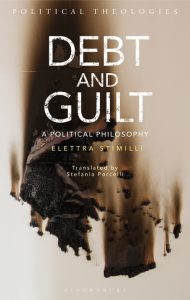 Blurb: The issue of debt and how it affects our lives is becoming more and more urgent. The “Austerity” model has been the prevalent European economic policies of recent years led by the “German model”. Elettra Stimilli draws upon contemporary philosophy, psychology and theology to argue that austerity is built on the idea that we somehow deserve to be punished and need to experience guilt in order to take full account of our economic sins. Following thinkers such as Max Weber, Walter Benjamin and Michel Foucault, Debt and Guilt provides a startling examination of the relationship between contemporary politics and economics and how we structure our inner lives.
Blurb: The issue of debt and how it affects our lives is becoming more and more urgent. The “Austerity” model has been the prevalent European economic policies of recent years led by the “German model”. Elettra Stimilli draws upon contemporary philosophy, psychology and theology to argue that austerity is built on the idea that we somehow deserve to be punished and need to experience guilt in order to take full account of our economic sins. Following thinkers such as Max Weber, Walter Benjamin and Michel Foucault, Debt and Guilt provides a startling examination of the relationship between contemporary politics and economics and how we structure our inner lives.
-
Jayne Svenungsson (2016) Divining History: Prophetism, Messianism and the Development of the Spirit. New York: Berghahn Books.
Blurb: For millennia, messianic visions of redemption have inspired men and women to turn against unjust and oppressive orders. Yet these very same traditions are regularly decried as antecedents to the violent and authoritarian ideologies of modernity. Informed in equal parts by theology and historical theory, this book offers a provocative exploration of this double-edged legacy. Author Jayne Svenungsson rigorously pursues a middle path between utopian arrogance and an enervated postmodernism, assessing the impact of Jewish and Christian theologies of history on subsequent thinkers, and in the process identifying a web of spiritual and intellectual motifs extending from ancient Jewish prophets to contemporary radicals such as Giorgio Agamben and Slavoj Zizek.
-
Charles Hirschkind (2020) The Feeling of History: Islam, Romanticism, and Andalusia. Chicago: University of Chicago Press.
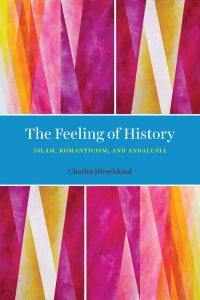 Blurb: This book explores some of the different ways in which Europe’s Islamic past inhabits its present, unsettling contemporary efforts to secure the continent’s Christian civilizational identity. Taking southern Spain as its primary focus, it examines forms of history and memory that mediate and sustain an active relation to the Islamic heritage of Andalusia, and the impact these forms have on the ethical and political possibilities of finding a place for Islam in Spain and Europe today. This effort at historical recuperation has been the central concern of a longstanding tradition (known as Andalucismo) among Spanish artists, writers, musicians, and political thinkers, a tradition based on the principle that contemporary Andalusia is linked in vitally important ways with al-Andalus (medieval Islamic Iberia) and that the challenges faced by Andalusians today—and by Europeans more broadly—require a recognition of that historical identity and continuity. The book gives particular attention to the role of musical and aesthetic sensibilities in shaping the way the past is encountered and given a place in the lives of contemporary Andalusians. Challenging conventional interpretations of Andalucismo as Romantic fictionalization or Orientalist fantasy, The Feeling of History highlights the multiple ways Spaniards have accommodated their lives to the demands of an inheritance only partially available to knowledge and thus more felt than known, and in doing so, have sought to unsettle the historical geography of what today is called fortress Europe.
Blurb: This book explores some of the different ways in which Europe’s Islamic past inhabits its present, unsettling contemporary efforts to secure the continent’s Christian civilizational identity. Taking southern Spain as its primary focus, it examines forms of history and memory that mediate and sustain an active relation to the Islamic heritage of Andalusia, and the impact these forms have on the ethical and political possibilities of finding a place for Islam in Spain and Europe today. This effort at historical recuperation has been the central concern of a longstanding tradition (known as Andalucismo) among Spanish artists, writers, musicians, and political thinkers, a tradition based on the principle that contemporary Andalusia is linked in vitally important ways with al-Andalus (medieval Islamic Iberia) and that the challenges faced by Andalusians today—and by Europeans more broadly—require a recognition of that historical identity and continuity. The book gives particular attention to the role of musical and aesthetic sensibilities in shaping the way the past is encountered and given a place in the lives of contemporary Andalusians. Challenging conventional interpretations of Andalucismo as Romantic fictionalization or Orientalist fantasy, The Feeling of History highlights the multiple ways Spaniards have accommodated their lives to the demands of an inheritance only partially available to knowledge and thus more felt than known, and in doing so, have sought to unsettle the historical geography of what today is called fortress Europe.
-
Jonathan Massey (with Aggregate, Architectural History Collaboration). (2012). Governing by Design: Architecture, Economy, and Politics in the Twentieth Century. Pittsburg: University of Pittsburg Press.
BLURB: Governing by Design offers a unique perspective on twentieth-century architectural history. It disputes the primacy placed on individuals in the design and planning process and instead looks to the larger influences of politics, culture, economics, and globalization to uncover the roots of how our built environment evolves.
In these chapters, historians offer their analysis on design as a vehicle for power and as a mediator of social currents. Power is defined through a variety of forms: modernization, obsolescence, technology, capital, ergonomics, biopolitics, and others. The chapters explore the diffusion of power through the establishment of norms and networks that frame human conduct, action, identity, and design. They follow design as it functions through the body, in the home, and at the state and international level.
-
Ali-Reza Bhojani (2020) “Towards the Hermeneutics of a Justice-Oriented Reading of Sharīʿa”. In Visions of Sharīʿa: Contemporary Discussions in Shī ͑ī Legal Theory.
BLURB: In Visions of Sharīʿa Bhojani, De Rooij and Bohlander present the first broad examination of ways in which legal theory ( uṣūl al-fiqh) within Twelver Shīʿī thought continues to be a forum for vibrant debates regarding the assumptions, epistemology and hermeneutics of Sharīʿa in contemporary Shīʿī thought. Bringing together authoritative voices and emerging scholars, from both ‘traditional’ seminaries and ‘Western’ academies, the distinct critical insider and emic accounts provided develop a novel avenue in Islamic legal studies. Contextualised through reference to the history of Shīʿī legal theory as well as contemporary juristic practice and socio-political considerations, the volume demonstrates how one of the most intellectually vibrant and developed discourses of Islamic thought continues to be a key forum for exploring visions of Sharīʿa.
-
Rebecca Bryant (and Mete Hatay) (2020) Sovereignty Suspended: Building the So-Called State. Philadelphia: University of Pennsylvania Press.
BLURB: What is de facto about the de facto state? In Sovereignty Suspended, this question guides Rebecca Bryant and Mete Hatay through a journey into de facto state-building, or the process of constructing an entity that looks like a state and acts like a state but that much of the world says does not or should not exist. In international law, the de facto state is one that exists in reality but remains unrecognized by other states. Nevertheless, such entities provide health care and social security, issue identity cards and passports, and interact with international aid donors. De facto states hold elections, conduct censuses, control borders, and enact fiscal policies. Indeed, most maintain representative offices in sovereign states and are able to unofficially communicate with officials. Bryant and Hatay develop the concept of the “aporetic state” to describe such entities, which project stateness and so seem real, even as nonrecognition renders them unrealizable.
-
Wilson Chacko Jacob. 2019. For God or Empire: Sayyid Fadl and the Indian Ocean World. Stanford: Stanford University Press.
BLURB: Sayyid Fadl, a descendant of the Prophet Muhammad, led a unique life—one that spanned much of the nineteenth century and connected India, Arabia, and the Ottoman Empire. For God or Empire tells his story, part biography and part global history, as his life and legacy afford a singular view on historical shifts of power and sovereignty, religion and politics.
Wilson Chacko Jacob recasts the genealogy of modern sovereignty through the encounter between Islam and empire-states in the Indian Ocean world. Fadl’s travels in worlds seen and unseen made for a life that was both unsettled and unsettling. And through his life at least two forms of sovereignty—God and empire—become apparent in intersecting global contexts of religion and modern state formation.
-
Sanal Mohan (2015) Modernity of Slavery: Struggles against Caste Inequality in Colonial Kerala. Oxford: Oxford University Press.
BLURB: Modernity of Slavery tells the story of Cherumas, Kuravas, Parayas, Pulayas, and Thanda Pulayas – the slave castes of nineteenth-century Kerala – and their tryst with Christianity. These castes comprised nearly one-sixth of the population and were “owned” by upper castes, princely states, and even Europeans. In the nineteenth and twentieth centuries, when European missionaries began working among the slave castes, thousands joined the Church. Their generational experiences, struggles, and memories shaped their collective self, and deeply impacted the emergence of Dalit consciousness in Kerala. This book presents and analyses the imaginations and articulations of the notion(s) of equality in the context of caste slavery, missionary activity, and socio-political transition in pre-colonial and modern Kerala.
-
Salah Punathil (2019) Interrogating Communalism: Violence, Citizenship and Minorities in South India. Routledge: Routledge India.
BLURB: This book examines conflict and violence among religious minorities and the implication on the idea of citizenship in contemporary India. Going beyond the usual Hindu-Muslim question, it situates communalism in the context of conflicts between Muslims and Christians. By tracing the long history of conflict between the Marakkayar Muslims and Mukkuvar Christians in South India, it explores the notion of ‘mobilization of religious identity’ within the discourse on communal violence in South Asia as also discusses the spatial dynamics in violent conflicts. Including rich empirical evidence from historical and ethnographic material, the author shows how the contours of violence among minorities position Muslims as more vulnerable subjects of violent conflicts.
-
Sonja Thomas (2018) Privileged Minorities: Syrian Christianity, Gender, and Minority Rights. Washington: University of Washington Press.
BLURB: Although demographically a minority in Kerala, India, Syrian Christians are not a subordinated community. They are caste-, race-, and class-privileged, and have long benefitted, both economically and socially, from their privileged position. Focusing on Syrian Christian women, Sonja Thomas explores how this community illuminates larger questions of multiple oppressions, privilege and subordination, racialization, and religion and secularism in India.
In Privileged Minorities, Thomas examines a wide range of sources, including oral histories, ethnographic interviews, and legislative assembly debates, to interrogate the relationships between religious rights and women’s rights in Kerala. Using an intersectional approach, and US women of color feminist theory, she demonstrates the ways that race, caste, gender, religion, and politics are inextricably intertwined, with power and privilege working in complex and nuanced ways. By attending to the ways in which inequalities within groups shape very different experiences of religious and political movements in feminist and rights-based activism, Thomas lays the groundwork for imagining new feminist solidarities across religions, castes, races, and classes.
-
Brent Crosson (2020) Experiments with Power: Obeah and the Remaking of Religion in Trinidad. Chicago: University of Chicago Press.
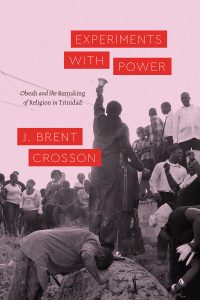 BLURB: In 2011, Trinidad declared a state of emergency. This massive state intervention lasted for 108 days and led to the rounding up of over 7,000 people in areas the state deemed “crime hot spots.” The government justified this action and subsequent police violence on the grounds that these measures were restoring “the rule of law.” In this milieu of expanded policing powers, protests occasioned by police violence against lower-class black people have often garnered little sympathy. But in an improbable turn of events, six officers involved in the shooting of three young people were charged with murder at the height of the state of emergency. To explain this, the host of Crime Watch, the nation’s most popular television show, alleged that there must be a special power at work: obeah.
BLURB: In 2011, Trinidad declared a state of emergency. This massive state intervention lasted for 108 days and led to the rounding up of over 7,000 people in areas the state deemed “crime hot spots.” The government justified this action and subsequent police violence on the grounds that these measures were restoring “the rule of law.” In this milieu of expanded policing powers, protests occasioned by police violence against lower-class black people have often garnered little sympathy. But in an improbable turn of events, six officers involved in the shooting of three young people were charged with murder at the height of the state of emergency. To explain this, the host of Crime Watch, the nation’s most popular television show, alleged that there must be a special power at work: obeah.From eighteenth-century slave rebellions to contemporary responses to police brutality, Caribbean methods of problem-solving “spiritual work” have been criminalized under the label of “obeah.” Connected to a justice-making force, obeah remains a crime in many parts of the anglophone Caribbean. In Experiments with Power, J. Brent Crosson addresses the complex question of what obeah is. Redescribing obeah as “science” and “experiments,” Caribbean spiritual workers unsettle the moral and racial foundations of Western categories of religion. Based on more than a decade of conversations with spiritual workers during and after the state of emergency, this book shows how the reframing of religious practice as an experiment with power transforms conceptions of religion and law in modern nation-states.
-
Elayne Oliphant (2020) The Privilege of Being Banal: Art, Secularism, and Catholicism in Paris. Chicago: University of Chicago Press.
BLURB: The Privilege of Being Banal: Art, Secularism, and Catholicism in Paris (Chicago, 2021) uses the concept of “banality” to explore how the monumental presence of Catholicism is able to move between Paris’s background and foreground without appearing threatening. Rather a sign of weakness, Catholicism’s banality is an expression of its Catholicism’s privilege in the Parisian landscape. It has, moreover, effaced a number of violent histories and alternate trajectories, as it undergirds Catholicism’s circulation in non-religious sites such as museums, corporate spaces, and political debates. The book’s aim is to unravel the contradictions of religion and secularism and, in the process, show how aesthetics and politics come together in contemporary France to foster the kind of banality that Hannah Arendt warned against: the incapacity to take on another person’s experience of the world.
